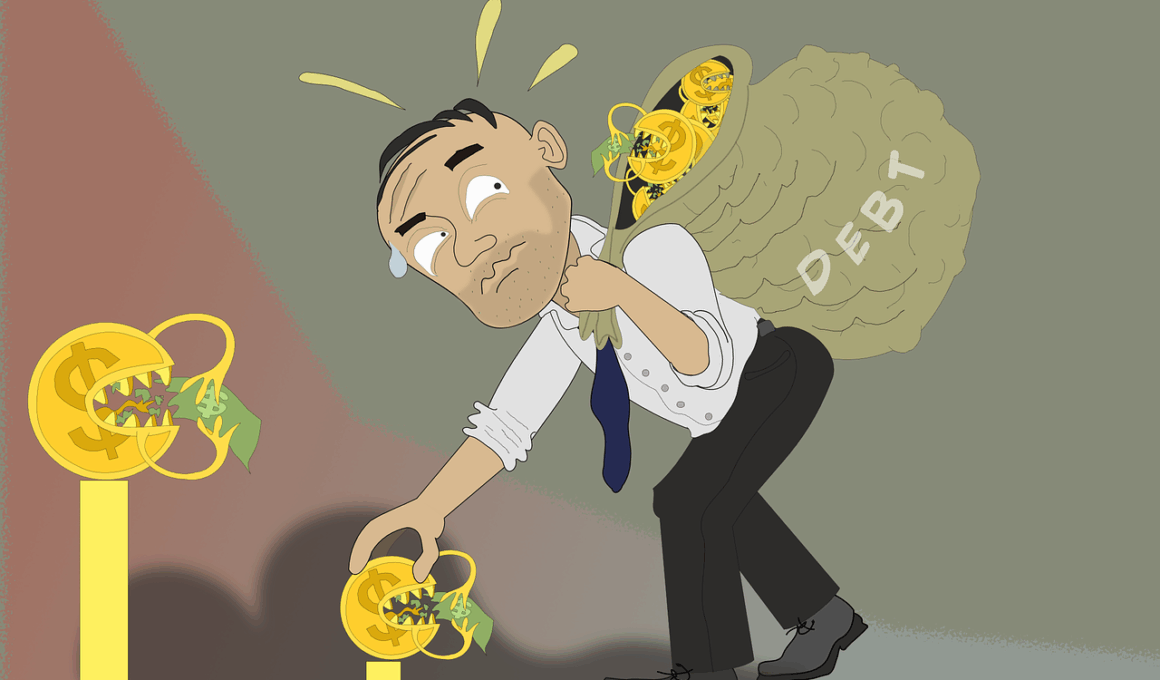The Pros and Cons of Using Savings to Pay Off Debt
In the world of personal finance, making informed decisions is crucial. One significant decision is whether to use savings to pay off debt. Many people may feel tempted to utilize their savings, particularly if they have high-interest debt, such as credit card balances. However, weighing the benefits against the drawbacks is essential before making this financial choice. Understanding the implications can help individuals make better decisions that suit their unique financial situations. This matter requires a nuanced approach, taking into account not only the immediate financial relief but also long-term objectives. The process involves analyzing the interest rates on debts versus the potential growth of savings, which can impact overall financial wellness. With careful consideration, individuals can find ways to balance savings and debt repayments effectively.
One major advantage of using savings to pay off debt is the potential interest savings. For instance, if you have a credit card with a significant interest rate, using savings to eliminate that debt can save you a substantial amount on interest payments. This choice allows individuals to regain control over their finances and reduce monthly obligations. Lowering debt balances can also improve credit scores, enhancing future borrowing opportunities. Furthermore, decreasing debt levels can alleviate stress, allowing individuals to focus on other financial goals. Choosing to prioritize debt repayment from savings can lead to more manageable monthly budgets and enable tracking of expenses more effectively. However, it’s important to consider the long-term implications of this choice. Insurance, emergencies, and unanticipated expenses can arise, and having a cushion in savings is prudent for overall financial stability.
Considerations Before Using Savings for Debt
While the benefits of using savings to pay off debt can be appealing, there are several important considerations to evaluate. Firstly, consider the amount of debt and its interest rates. Assess if those rates outweigh the interest you could earn through savings accounts. Additionally, evaluate your emergency fund status. A robust emergency fund can provide financial security against unforeseen circumstances. If using savings for debt repayment jeopardizes this fund, careful consideration is necessary before proceeding. Another critical factor includes the psychological effect of debt. Paying off high-interest debt can relieve stress; however, depleting savings can create anxiety about future financial scenarios. Individuals should weigh their comfort levels with risk when deciding whether to utilize savings. For some, emotional peace with lower debt may outweigh the risks of diminished savings. Understanding personal values in finance can guide a balanced approach to managing both debt and savings.
Another consideration when deciding whether to use savings for paying off debt involves the type of debt incurred. Not all debts are created equal; student loans, for example, typically offer lower interest rates than credit cards. If the debt is manageable and has a lower interest rate, maintaining savings might be a wiser choice. Conversely, if the debt is causing significant strain, paying it off might make sense even if it means dipping into savings. It’s also important to recognize potential penalties associated with early debt repayment. Certain loans may entail prepayment penalties, which could erase potential savings from paying off the debt early. By investigating the specifics of the financial situation, individuals can better align their approach with strategic decision-making. Moreover, looking into alternative solutions like debt consolidation might be viable without exhausting savings.
Alternatives to Using Savings
Rather than depleting savings to address debt, consider exploring alternative strategies. For example, pursuing debt management plans with lower interest rates can spread payments over a more extended term, making them more manageable. Another appealing option may involve refinancing loans to secure more favorable rates. Additionally, generating extra income through side jobs or freelance work can help you pay down debts without touching savings. Individuals can also explore balance transfer offers on credit cards to access lower interest rates for their existing debts. Such arrangements provide breathing room to pay down debts and may improve overall cash flow. Reducing unnecessary expenses or scaling back on lifestyle choices can also free up cash to tackle debts head-on without compromising savings. Implementing a combination of these strategies can lead to healthier financial management while keeping savings intact.
A further consideration involves the psychological impact of debt and savings decisions. For some, the idea of being debt-free is a top priority that outweighs having a robust savings account. On the other hand, some individuals may experience anxiety with low savings, even with manageable debt levels. Understanding your mindset toward finances is crucial in navigating these decisions. Additionally, seeking guidance through financial counseling or utilizing financial advisors can provide valuable perspectives. They equip individuals with tools and strategies to effectively manage both debt and savings simultaneously. Mental preparedness, financial literacy, and a comprehensive understanding of one’s financial standing are essential for making prudent decisions. In situations where emotional strain coincides with monetary challenges, reconnecting with long-term goals can provide direction and clarity in decision-making.
Conclusion: Balancing Debt and Savings
Ultimately, the decision to use savings to pay off debt is not solely about numbers; it reflects personal values, financial literacy, and individual circumstances. Each financial journey is different, and there is no one-size-fits-all answer to this dilemma. Balancing savings and debt requires consideration of current financial health, future goals, and lifestyle preferences. Assessing the trade-offs between immediate relief and long-term financial health is essential. It’s critical to remain flexible and adjust strategies as circumstances evolve, ensuring that your financial foundation remains secure. Balancing these elements wisely can lead to both quicker debt repayment and robust savings over time. Seeking support and maintaining an informed perspective will yield better outcomes for overall financial wellness. Consideration of these factors can empower individuals to achieve financial stability and navigate the complexities of personal finance with confidence.
By engaging in a thoughtful process of eliminating debt without sacrificing savings, individuals can build a foundation for lasting financial prosperity.





